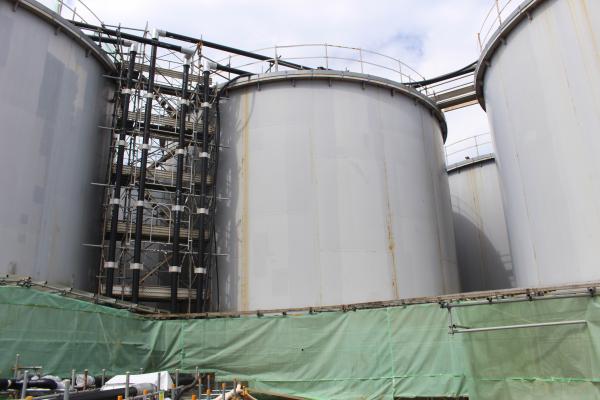Plan To Release Water From Fukushima Sparks Outrage
Japanese Government Faces Domestic And International Objections
16 Apr 2021 by The Water Diplomat
TOKYO, Japan

The Japanese government has announced plans to start releasing "treated" radioactive water stored at the destroyed Fukushima nuclear plant into the Pacific Ocean. The 1.37-million-ton storage facilities there will reach capacity towards the end of 2022, and the plant's operator, Tokyo Electric Power Co (TEPCO), says it has no choice but to commence release within the next two years.
Representatives of the fisheries, scientific and environmental communities object to the plans, citing concerns about the impact on fish stocks, the local ecology and the wider environment. Media reports quote the chairman of the Japanese Fisheries Cooperative, Hiroshi Kishi, as calling the decision "absolutely unacceptable" and that it "trampled on" all Japanese fisheries operators.
Meanwhile, neighbouring nations China and South Korea have issued statements calling the plan "absolutely unacceptable" and "extremely irresponsible". South Korea subsequently summoned Tokyo's ambassador to Seoul to express its concerns, and is investigating avenues for referring Japan's decision to the International Tribunal for the Law of the Sea.
The International Atomic Energy Agency (IAEA), on the other hand, has said that it is ready to support Japan on its water disposal plans. In a statement, director general of the IAEA Mariano Grossi welcomed the announcement that a decision had been made and said the IAEA stands ready to provide technical support in monitoring and reviewing the plan's safe and transparent implementation.
"The Japanese Government’s decision is in line with practice globally, even though the large amount of water at the Fukushima plant makes it a unique and complex case,” said Grossi, Adding: "Our cooperation and our presence will help build confidence – in Japan and beyond – that the water disposal is carried out without an adverse impact on human health and the environment."
Likewise, the US Department of State has issued a carefully worded statement, saying: "In this unique and challenging situation, Japan has weighed the options and effects, has been transparent about its decision, and appears to have adopted an approach in accordance with globally accepted nuclear safety standards. We look forward to the GOJ’s continued coordination and communication as it monitors the effectiveness of this approach."
Following the announcement by the Japanese government on 13 April, TEPCO held a press conference on 16 April at which it detailed the Advanced Liquid Processing System (ALPS) it is employing to treat the water. The documents released include assurances that environmental monitoring of the discharge process will include third-party measurements and an invitation to agricultural, forestry, and fishery producers and local government officials to participate in and observe their efforts.
Towards the end of the two-year process for approving the implementation plan, TEPCO proposes to commence "carefully discharging small amounts" then to continue monitoring the sea for an undefined period subject to review by the IAEA.
In an attempt to allay domestic and international concerns TEPCO undertook to "continuously provide accurate information in a highly transparent manner, regarding the impacts on the environment such as the results of measurements/analysis on the concentration of radioactive materials in the ALPS treated water before discharge".
Photo credit: TEPCO
